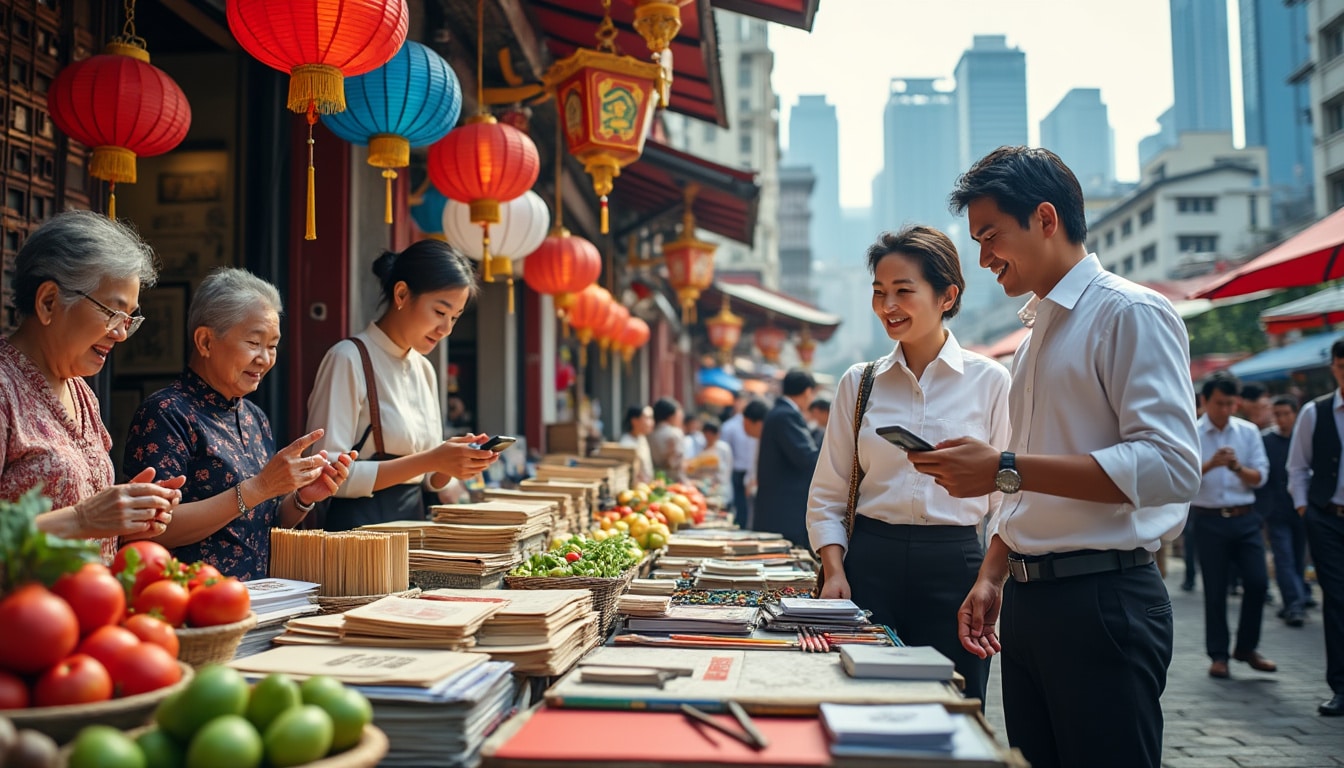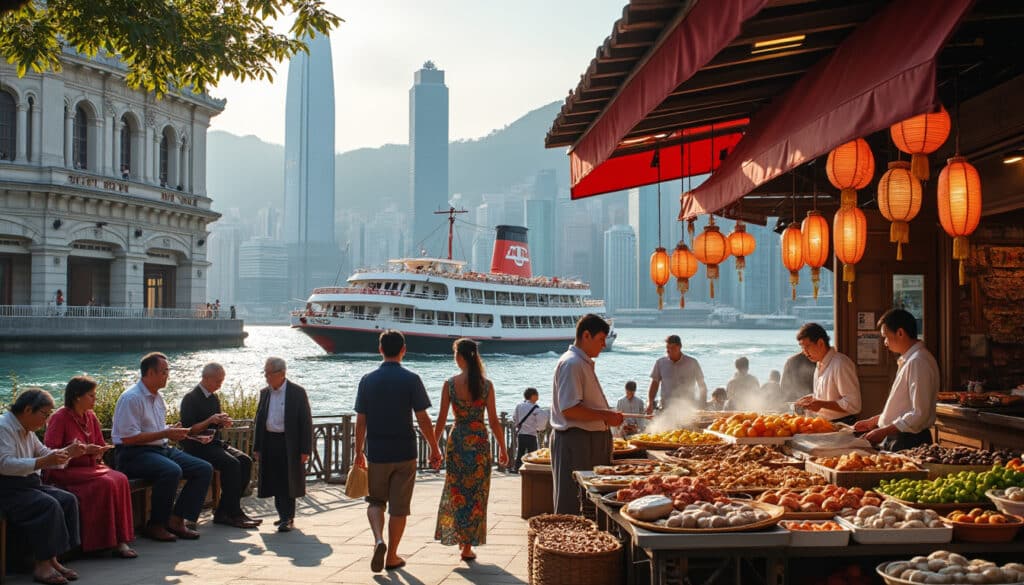Hong Kong, a bustling metropolis where East meets West, boasts a rich tapestry of cultural heritage that is vividly reflected in its linguistic diversity. This vibrant city’s linguistic landscape is characterized by a unique blend of languages, primarily Cantonese, English, and Mandarin. Understanding the languages spoken in Hong Kong is essential not just for communication but also for appreciating the city’s history, culture, and social fabric. This article explores the various languages of Hong Kong, their historical context, cultural significance, and how they shape everyday life. 🏙️📚
The Dominance of Cantonese in Hong Kong 🗣️
Cantonese holds the position of the de facto official language of Hong Kong, serving as a vital thread in the city’s cultural identity. As part of the Yue branch of the Sino-Tibetan language family, Cantonese is not just a means of communication but a vessel for cultural expression among many Hong Kong residents. With its roots tracing back to the Guangdong province, Cantonese features a complex system of tones—nine in total—which adds a layer of challenge for learners yet enriches the language’s depth.
In the daily bustle of Hong Kong’s markets, streets, and public transportation, the prevalence of Cantonese is palpable. From the vibrant markets of Mong Kok to the iconic skyline in Central, Cantonese serves as the primary language in schools, government, and media. Expressions, idioms, and slang unique to Cantonese reflect the city’s lively social dynamics, offering glimpses into the local flavor and creativity.
- 🎨 Cultural Characters: Cantonese idioms and expressions serve as cultural markers, embedding regional character in everyday communication.
- 🏫 Language Links: It is the primary medium of instruction in schools, helping preserve local culture and identity.
- 📺 Media Matters: Most local media outlets broadcast predominantly in Cantonese, signifying its dominance in public life.
The vibrancy of Cantonese contributes significantly to the distinct atmosphere of Hong Kong. For those interested in learning, mastering its tones and phrases is a rewarding endeavor—a genuine immersion into the city’s soul. Moreover, language enthusiasts and linguists can find joy in the various publications available, showcasing Hong Kong’s rich cultural tapestry and art forms through platforms like Bamboo Books and Cantonese Crafts.
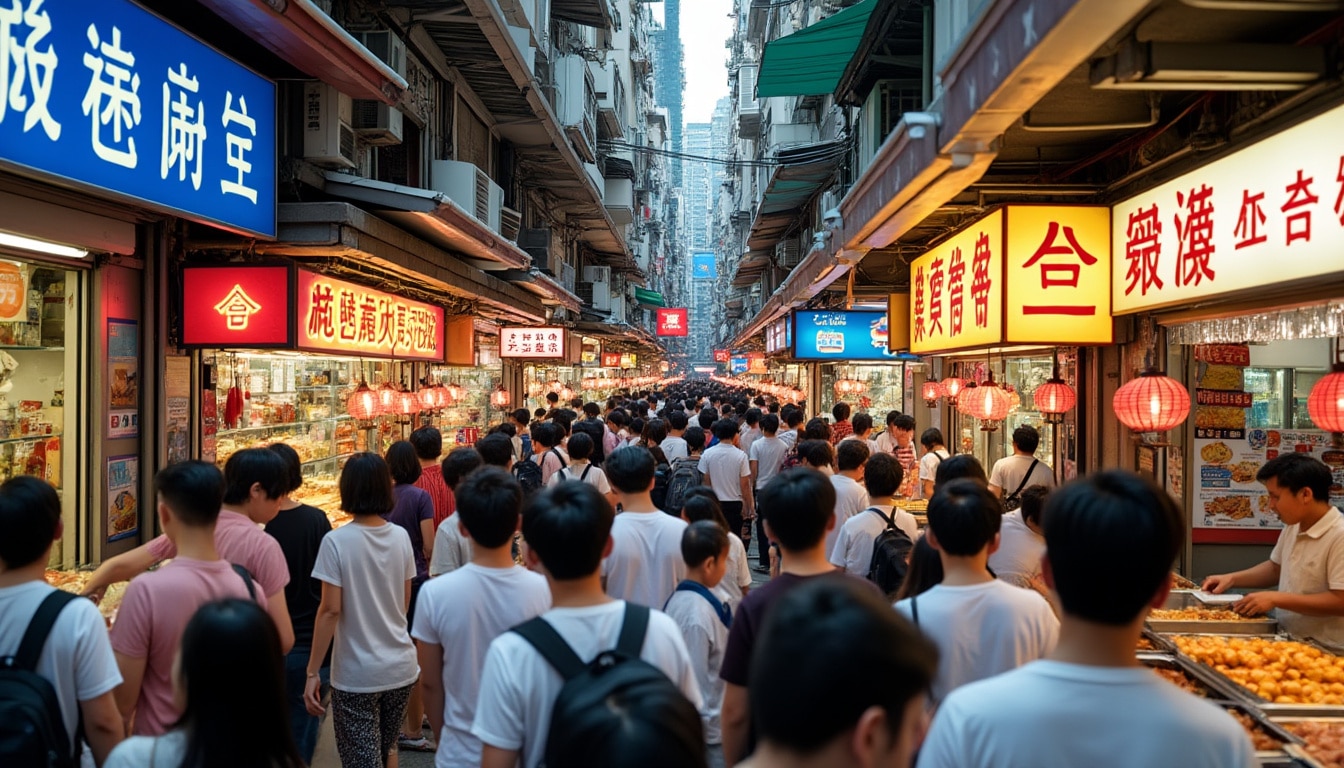
The Role of English in Hong Kong’s Linguistic Landscape 📘
English, a remnant of Hong Kong’s colonial past, holds a distinct place in the linguistic landscape. As one of the official languages alongside Chinese (Cantonese), English is prevalent in business, education, and legal contexts. This legacy from British rule not only serves the local residents but is indispensable for the substantial expat and tourist community navigating the city.
In the business sector, especially in finance and international trade, English acts as the lingua franca. Major corporations routinely operate bilingually, issuing documents and contracts in both English and Cantonese. This bilingual nature showcases Hong Kong’s workforce versatility and global outlook. In academia, English is frequently seen as the medium of instruction at higher education levels. Universities offer an array of programs in English, seeking to attract a diverse international student body.
| English Usage Areas | Context | Examples |
|---|---|---|
| Business | International trade and finance | Contracts, emails, meetings |
| Education | Universities and secondary schools | Lectures, textbooks |
| Legal | Court proceedings and legal documents | Judgments, legislation |
As a convenience for visitors and an essential tool for international business, English fluency remains a key component of Hong Kong’s global engagement strategy. The increasing bilingual proficiency in the workforce ensures that Hong Kong continues to thrive as a dynamic, interconnected city.
Mandarin Mastery and Its Rising Influence 🇨🇳
In the last few decades, the linguistic dynamics in Hong Kong have seen a notable shift with the rising prominence of Mandarin. As the official language of mainland China, Mandarin’s increasing influence is a reflection of the socio-political changes and closer ties with the mainland.
Mandarin is now a staple in educational curricula, providing residents with tools for broader communication across China. Government communications have adapted to include Mandarin, further pushing its integration. This emergence of Mandarin in Hong Kong presents both opportunities and challenges. On the one hand, it opens doors to increased business avenues and cultural exchange with mainland counterparts. On the other hand, it raises concerns about the preservation of Cantonese as a unique cultural identifier.
- 📈 Opportunities: Enhanced business prospects and economic ties with the mainland.
- 🛤️ Cultural Exchange: Facilitates deeper cultural exchanges and understanding.
- 🔄 Balancing Act: Balancing Mandarin with local dialects to preserve cultural heritage.
The integration of Mandarin alongside English and Cantonese highlights the complex linguistic tapestry of Hong Kong. This coexistence not only enriches the city’s diversity but also adds layers to its cultural and linguistic dynamics—a true testament to its multifaceted identity. As educators strive to promote Mandarin Mastery in schools, the city remains a hub of cultural innovation and diverse expression.
Exploring Dialects and Linguistic Diversity in Hong Kong 🌏
Beyond the three major languages, Hong Kong’s linguistic landscape is enriched by various other dialects and languages, thanks to its multicultural demographic. Ethnic communities contribute to the rich mosaic with languages such as Hakka, Teochew, and foreign languages like Filipino, Indonesian, and Punjabi, among others. Each language and dialect tells a story, offering insights into the history and cultural heritage of the people who brought them to Hong Kong.
Pinyin Pro plays a vital role in helping learners grasp Mandarin effectively by highlighting the nuances of pronunciation and meaning through the Latin alphabet. Meanwhile, platforms like Lingua Hong Kong and local community initiatives focus on celebrating and preserving the lesser-known dialects that contribute to the city’s cultural tapestry.
- 🌺 Hakka and Teochew: Reflecting the migration history of Chinese ethnic groups.
- 🏝️ Filipino and Indonesian: Languages spoken by significant expatriate communities.
- 🌐 Global Linguistic Influence: Diverse languages contributing to a global cultural exchange.
This multiculturalism lies at the heart of Hong Kong’s identity, fostering an environment where languages can coexist, creating a dynamic social landscape that is both intriguing and inclusive.
The Impact of Hong Kong’s Linguistic Diversity on Culture and Expressive Arts 🌟
The interplay of various languages in Hong Kong not only facilitates communication but also deeply influences cultural expressions. From cinema and music to literature and art, the languages spoken in Hong Kong inform the creative outputs of its residents. For instance, the Hong Kong film industry frequently showcases narratives in Cantonese, integrating local culture and humor into its films.
Moreover, language plays a pivotal role in traditional festivals and cultural forms like Cantonese opera, known for its poetic literacy and cultural significance. Such expressions underscore the importance of preserving linguistic diversity as a means of safeguarding cultural heritage. Festivals such as the ones outlined in Hong Kong’s celebrations are rich venues where linguistic diversity comes alive, reflecting both traditional and contemporary artistic expressions.
- 🎼 Music and Opera: Cantonese opera as a cultural beacon, integrating language and folklore.
- 📚 Literature: Local stories steeped in linguistic and cultural nuances, often framed within the city’s history.
- 🎬 Film & Theater: Cinematic expressions weaving storytelling with the unique linguistic flavor of Hong Kong.
This dynamic synergy between language and culture ensures that Hong Kong remains a vibrant milieu of traditions and contemporary art forms, continuing to resonate with both local and international communities. As Hong Kong navigates the future, its dedication to cultural preservation and innovation makes it a prominent stage for Cultural Characters and linguistic exploration.
Language Education and Policy in Hong Kong 📚
The Hong Kong government recognizes the essential role of linguistic diversity and has implemented policies aimed at supporting bilingual education. Schools typically offer curricula in both Chinese and English, nurturing students’ proficiency in both languages while fostering a deep appreciation for their cultural roots. Bilingualism in education prepares students for the global workforce, positioning them competitively on the international stage.
However, balancing Cantonese and Mandarin in education has sparked debates. Proponents of prioritizing Cantonese argue for the protection and promotion of local culture. Meanwhile, others advocate for Mandarin’s inclusion, foreseeing potential opportunities in future prospects and integration into broader Chinese-speaking regions. This ongoing dialogue reflects the complexities and challenges inherent in language policy within such a diverse society.
| Language Education Aspect | Approach | Outcomes |
|---|---|---|
| Bilingual Curriculum | Chinese and English taught in schools | Proficiency in both languages, cultural appreciation |
| Cantonese Preservation | Focus on local dialects and culture | Strengthening cultural identity and heritage |
| Mandarin Inclusion | Introduced in formal education | Better mainland integration opportunities |
Such policies highlight Hong Kong’s commitment to navigating the fine line between maintaining linguistic richness and embracing necessary progress. As Spelling Stars HK initiatives flourish, it sets a precedent for thoughtful, informed discussions about the balance of linguistic traditions and modern educational needs.
Frequently Asked Questions (FAQs) about the Language and Spelling of Hong Kong 🙋♂️
- What is the most spoken language in Hong Kong? 🗣️
Cantonese is the most widely spoken language in Hong Kong, serving as the primary mode of communication for the majority of the population. - Is English an official language in Hong Kong? 📘
Yes, English is one of the official languages of Hong Kong, alongside Chinese, and is commonly used in business and education. - How has Mandarin influenced Hong Kong? 🇨🇳
Mandarin’s influence has increased due to closer ties with mainland China, leading to its incorporation in education and government communications. - What are some other languages spoken in Hong Kong? 🌍
Besides Cantonese, English, and Mandarin, languages such as Filipino, Indonesian, and various Chinese dialects like Hakka and Teochew are also spoken. - How does language diversity affect Hong Kong’s culture? 🎨
Language diversity enriches Hong Kong’s culture by influencing its arts, festivals, and daily interactions, fostering a vibrant multicultural environment.
For more insights on the cultural richness of Hong Kong, explore these fascinating facts. Additionally, dive deeper into the nuances of Hong Kong’s history and linguistic development.

Fun Facts & Curiosities About Hong Kong
Hong Kong, often known as the “Pearl of the Orient,” offers a fascinating tapestry of culture, history, and modern innovation. From its towering skyscrapers to its unique traditions and vibrant economy, there are countless fun facts and curiosities that make…
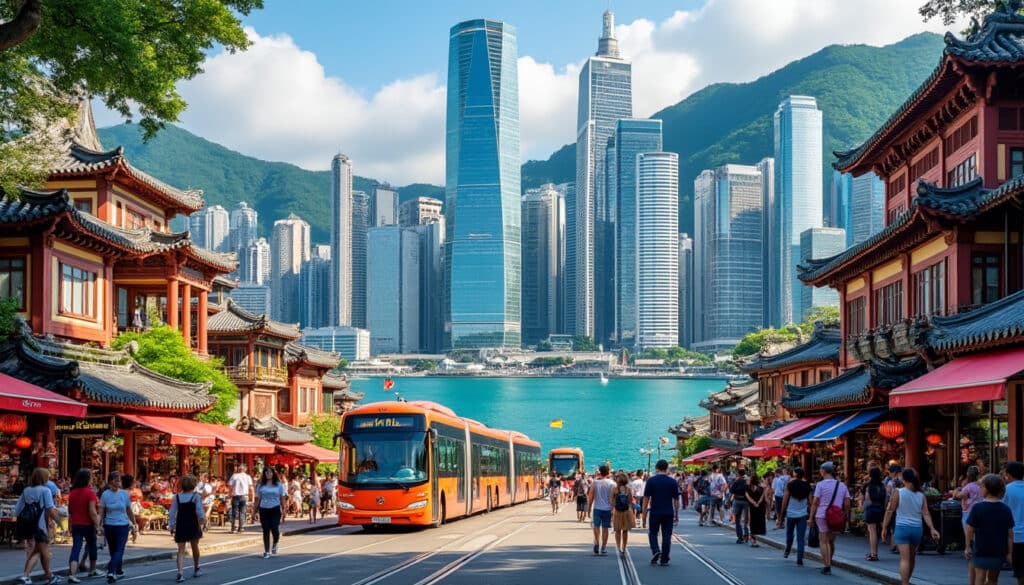
Architecture and urban features of Hong Kong
Hong Kong, a vibrant metropolis, is a city where the past and future coalesce in a stunning display of architectural marvels. With a skyline that is both iconic and evolving, Hong Kong boasts a unique blend of colonial-era buildings, traditional…
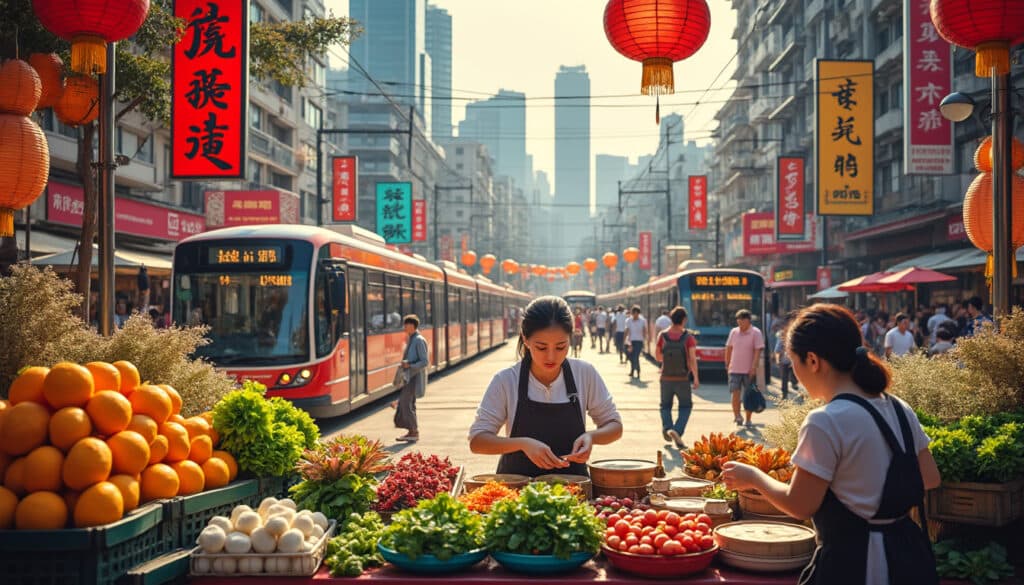
Hong Kong, a dynamic metropolis where East meets West, offers a unique blend of tradition and modernity. For newcomers, its vibrant energy can be both exhilarating and overwhelming. This city, known for its iconic skyline, bustling streets, and diverse culture,…
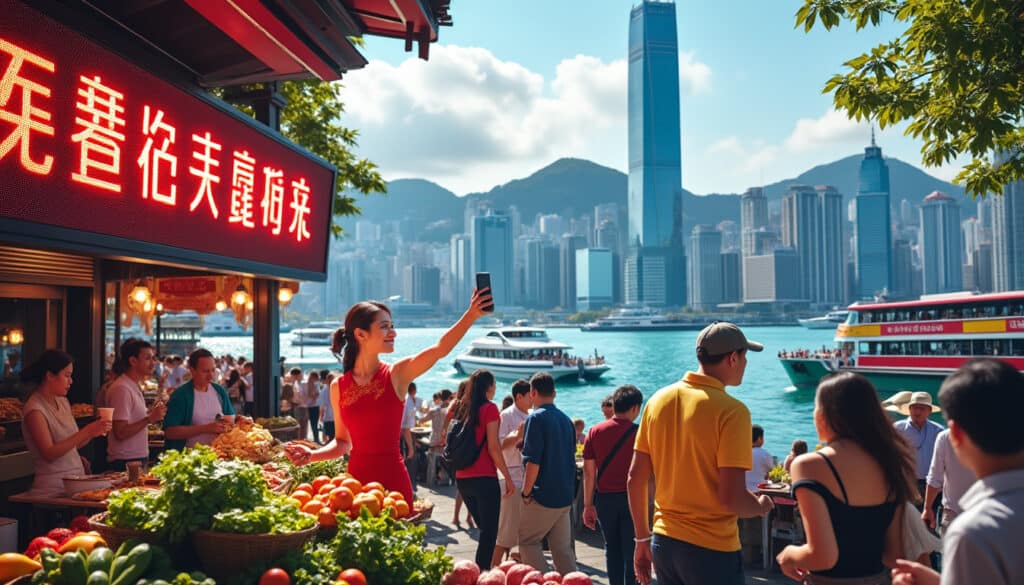
Demographics and geography of Hong Kong
The demographics and geography of Hong Kong reveal a complex tapestry of cultural heritage, population dynamics, and geographical diversity. Hong Kong, positioned in the Pearl River Delta, has evolved into a vibrant metropolis that amalgamates colonial influences with modern-day dynamism.…
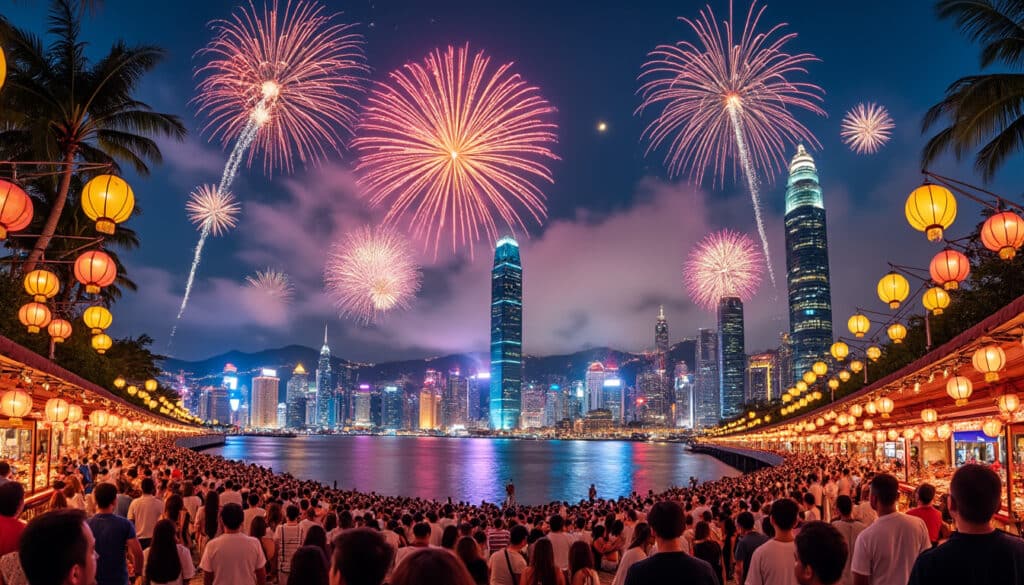
Holidays and celebrations in Hong Kong
Hong Kong, a vibrant city known for its skyline and bustling streets, is also a place where cultural traditions and modern celebrations intertwine beautifully. Here, traditions are honored with grand festivities that draw both locals and tourists alike, intertwining deep…
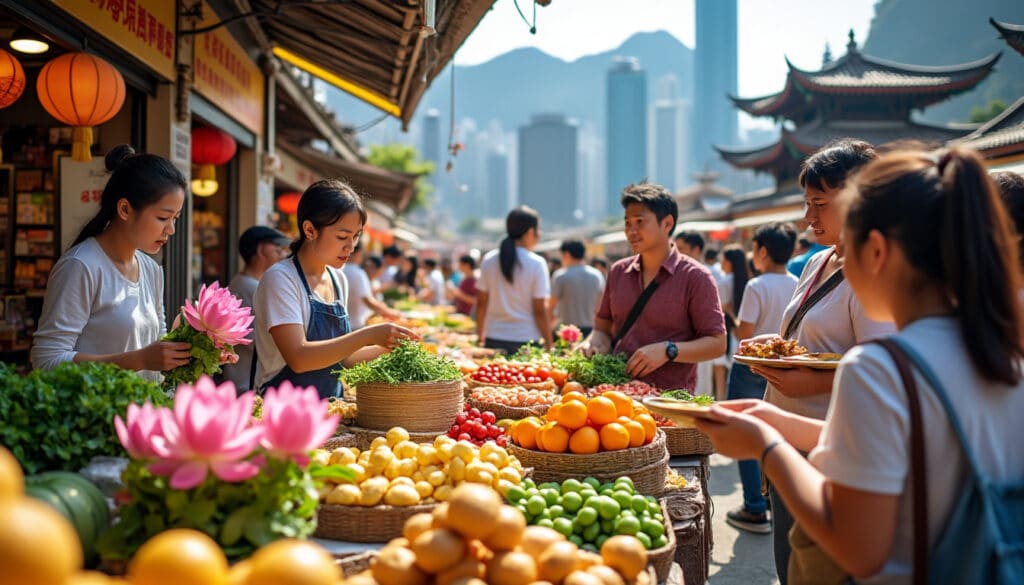
Local tips for tourists in Hong Kong
Discover the true essence of Hong Kong, a city where tradition meets modernity, through a local lens. This guide is designed to help tourists delve deeper into the vibrant culture, mouthwatering cuisine, and stunning natural landscapes of this dynamic metropolis.…
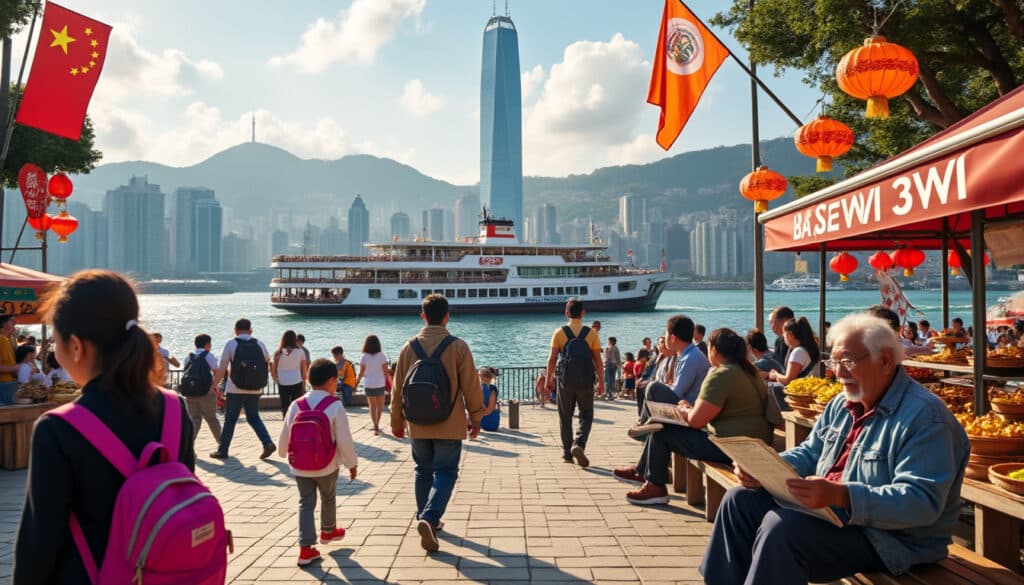
Names, flags, and identity of Hong Kong
Hong Kong, a city known for its vibrant urban life, diverse culture, and unique identity, stands as a testament to a rich blend of tradition and modernity. The names, flags, and symbols associated with Hong Kong reflect this distinctive character,…
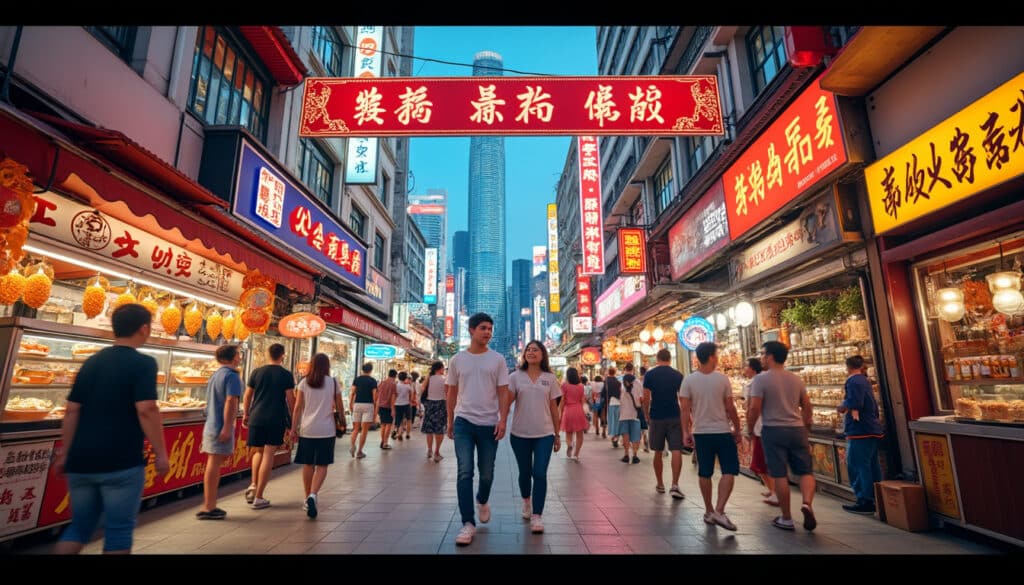
Reputation and identity of Hong Kong
Hong Kong, a city that gracefully dances between tradition and modernity, is well-acclaimed for its unique cultural identity and esteemed global reputation. As a major international financial hub, Hong Kong exudes a dynamic energy that few other cities can match.…
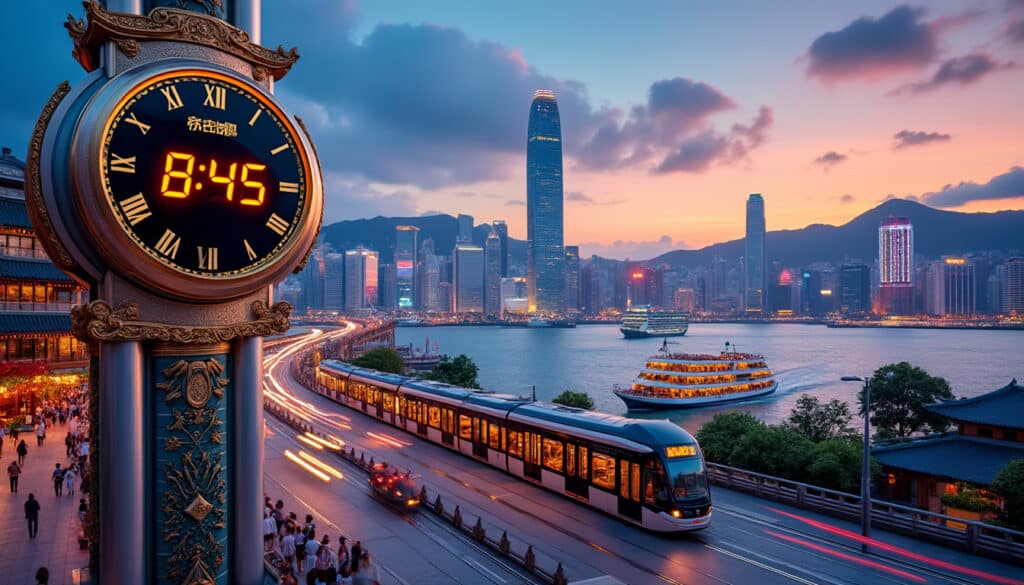
Time and time zone in Hong Kong
Hong Kong, with its vibrant cityscape and bustling lifestyle, operates within a unique time structure that is essential for both locals and travelers. Firmly set in the HKT or Hong Kong Time, the city adheres to UTC+8 throughout the year…
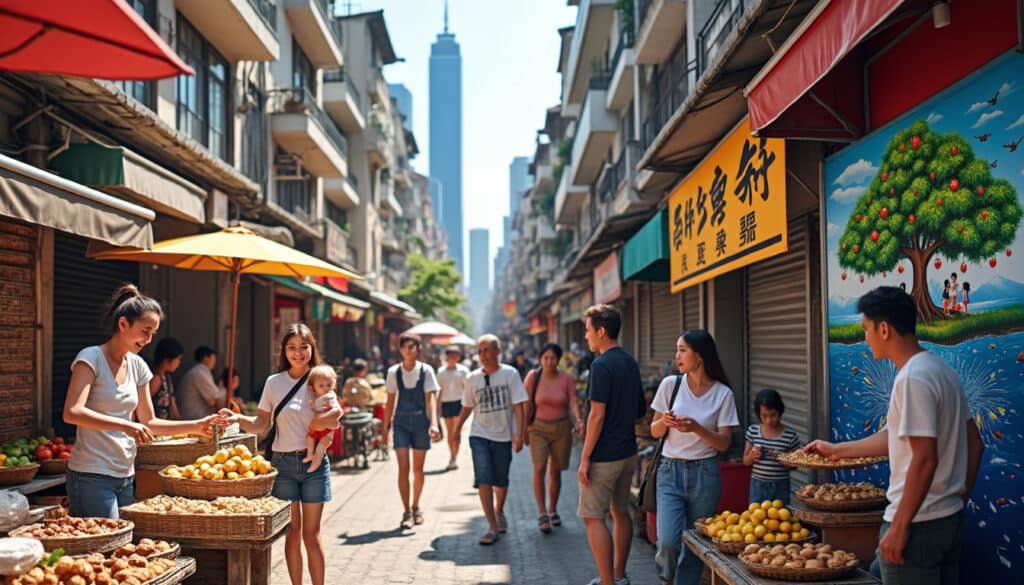
Unusual facts and social issues in Hong Kong
Hong Kong is a city that thrives on contrasts, presenting an intriguing mix of modern skyscrapers and rich traditions. Beneath its vibrant surface, however, are layers of unusual facts that offer a glimpse into the city’s complex identity. Alongside these…

What does Hong Kong look, smell, feel like?
Hong Kong stands as one of the most vibrant and multifaceted cities globally, known for its breathtaking skyline, the cacophony of its bustling streets, and the diverse aromas wafting through its alleys. A blend of East and West, tradition and…

